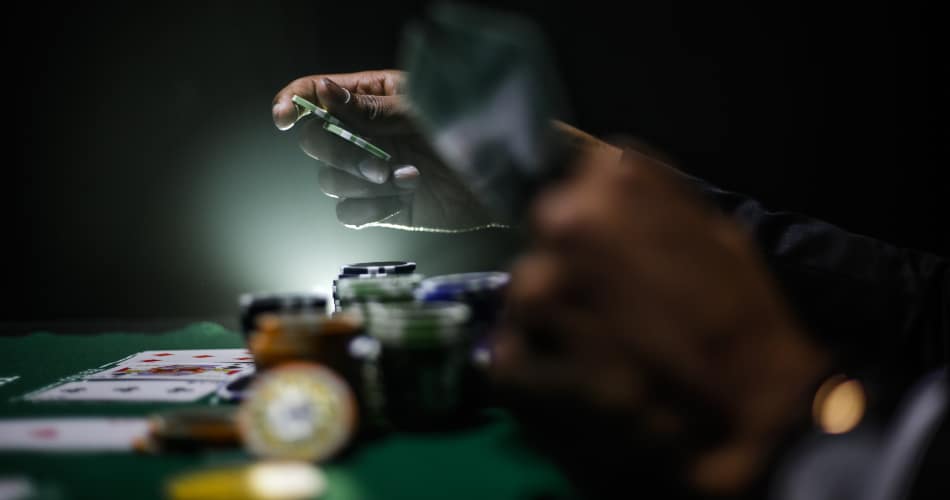
A new survey from gambling charity GambleAware has found an increase in the number of problem gamblers seeking help.
GambleAware has published its annual GB Treatment and Support Survey for 2020 which has found that around 63% of problem gamblers (PGSI 8+) said they had used a form of gambling treatment, advice or support over the last 12 months, compared to 54% in November 2019.
The survey, conducted by YouGov, sampled 18,879 adults and found that 2.4% of adults in the UK are problem gamblers (PGSI 8+). What’s more, it found a year-on-year increase in the reported usage of treatment services from 43% to 53%, as well as an increase in support and advice from 39% to 48%.
The report, which can be read here, also included research into the remote delivery of treatment, advice and support. Around 44% of gamblers (PGSI 1+) surveyed said it was better than in a face-to-face setting, while 38% said it was about the same.
According to the gamblers surveyed, 33% said accessing remote services was better because there was more discretion, 32% said it was more convenient or had a personal reference for online and remote appointments, and a further 27% said they found online sessions less embarrassing or overwhelming.
Meanwhile, of the problem gamblers surveyed who haven’t accessed treatment, advice or support remotely or at all, 18% felt that remote or online support would be worse than in-person for reasons like the lack of eye-contact or being unable to read body language.
A further 16% of problem gamblers said they did not have a private space to engage in their treatment and 14% said that sharing their devices with other people at their home makes accessing online services difficult.
The GambleAware survey also touched on the barriers problem gamblers face in accessing treatment, with common reasons being a concern over the stigma of seeking treatment and the perception that treatment would be inaccessible. The most significant barrier was denial as many problem gamblers believed their gambling was not “risky”.
However, the survey found that almost 60% of problem gamblers reported wanting a form of treatment, advice or support. The survey also revealed what motivated problem gamblers to seek out treatment, including knowing that support was available via a particular channel (29%), an awareness of the ease of accessing support (22%), and confirmation that treatment and support would be confidential (16%).
Zoe Osmond, the CEO of GambleAware, said in a statement: “It is encouraging to see a year-on-year increase in those classified as ‘problem gamblers’ seeking help, especially during the pandemic. These results will be used to help inform GambleAware’s new commissioning strategy as we continue our work to increase [the] provision of and access to services.
“The significantly increased sample will allow GambleAware to better tailor existing support services according to local need and allow us to better support local authorities and health commissioners.”
The survey is GambleAware’s second annual GB Treatment and Support Survey, following last year’s report which covered the period up to November 2019. According to GambleAware, the reports aim to explore the usage of treatment and support services among gamblers and those affected by another’s gambling.
Meanwhile, UK online gambling self-exclusion service GAMSTOP has announced a new partnership with English Premier League club Crystal Palace.
Under the partnership, Crystal Palace football club will share information about GAMSTOP across its social channels and donate advertising collateral from its Selhurst Park stadium towards the service. GAMSTOP will also provide Crystal Palace with free training and advice about its services.
Steve Parish, the Chairman of Crystal Palace, told Focus GN: “Whilst most people who gamble on football do so to enhance their enjoyment of the sport, GAMSTOP gives anyone experiencing problems with their gambling a chance to regain control.”
Fiona Palmer, the GAMSTOP Chief Executive, added: “The pandemic has led to increased sign-ups and we are trying to ensure that anybody who is struggling with their gambling, or has a loved one experiencing problems, knows where they can access support.
“The support of Crystal Palace will help us extend our reach and we hope that other Premier League and women’s clubs will follow their example.”
Crystal Palace, whose current shirt sponsor is betting operator W88, has a long history with safer gambling organisations as it became the first English Premier League football club to form a partnership with gambling charity GamleAware in 2018.
The news comes as gambling football shirt sponsorships have come under fire, with many campaigners arguing that they expose children to gambling and encourage people, particularly those who are at risk, to gamble. However, the UK Government is currently conducting its review of the Gambling Act 2005, which could lead to an outright ban on gambling shirt sponsorships.
GAMSTOP is a free self-exclusion scheme that allows gamblers to exclude themselves from all online gambling websites in the UK over a select period of time, such as six months, a year or five years. Registered are also encouraged to seek additional help from other organisations, including GambleAware.
From January 2020, all operators with a valid UK license were required to participate in the GAMSTOP self-exclusion scheme as part of a new condition of their licenses from the UK Gambling Commission. Operators that fail to do so risk losing their operating license.
Earlier this month, GAMSTOP partnered with fellow gambling organisations and charities GamCare and Gamban for the launch of their joint new campaign #TalkBanStop which was designed to promote the tools supported by the National Gambling Treatment Service. They include Gamban’s gambling blocking software, GAMSTOP self-exclusion scheme and GamCare’s various support services.